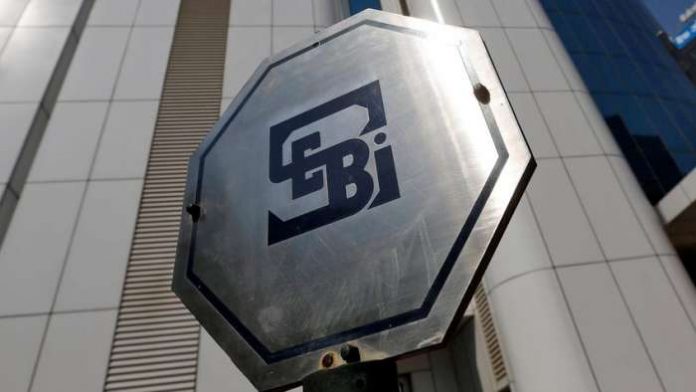This article is written by Aarushi Rao, from the School of law, Ansal University. This article deals with SEBI on takeovers and equity.
Table of Contents
Introduction
The Securities and Exchange Board of India (SEBI) was established on 12 April 1992, with a goal to scan the malpractices, safeguard the interest of investors and to encourage the development of, and to manage the securities market. Substantial Acquisition of Shares and Takeovers Regulations, 2011 was organised by SEBI to safeguard the investors.
The regulator of stock exchange, which needs the promoters to offer mandatory offers to the general public to make a decision if they want to still be the shareholders of the corporation within the changed circumstances. The takeover of a considerable number of shares, voting rights or control during a listed Indian company, attracts the provisions of the Takeover Code. The Takeover Code regulates the method of acquisition of additional shares by an acquirer, once the acquirer has ownership of a delegated level of shareholding or voting rights during a listed company.
Observations by SEBI
During the COVID-19 times, SEBI underwent growth being well based on its observations on all public and rights issues by 6 months:
- It also took in fast-track rights issues and made lower, less the edge, limit for least possible or recorded listed as having made payment for requirements for the question of a right under discussion from the currently in existence 90% to 75% of the offered size.
- The regulator said the validity of its observations on all public and rights issues would be extended from the date of expiry for issuers whose observation has expired or will expire between March 1 and September 30.
- Having the necessary qualities needed for an average market capitalisation of public ownership of a company of Rs. 250 crore has been lowered, less to Rs 100 crore. The move is directed at going for growth in the all existence of listed things for the purpose of fast-track rights putting out, SEBI said.
- It also made half the time needed on the listing of part ownership shares of the one putting out to 18 months.
SEBI takeover panel
SEBI Act 1992, rule 4 discusses Management of Board, says that:
- There should be a chairman, two members out of the officials dealing with the finance of the Central Government.
- One member should be appointed from the officials of the Reserve Bank.
- Five other members to be appointed by the Central Government, amongst whom at least three members shall be full-time members.
- The person who becomes an owner shall text record an application supported by a rightful affidavit with the Board, giving details of the proposed acquisition and the grounds on which the exemption has been looked for.
- Along with such application, a fee of fifty thousand rupees shall be paid to the Board, either by a bankers check or request order on a bank for the part owner-ship papers and Exchange Board of India, for payment at Mumbai.
- The Board shall have a meeting within five days of receipt of an application.
- The work of the committee is to make a statement of good words for the application above to the Board within 15 days from the day of receipt of the application.
- The Board shall after providing enough reasonable chance to the concerned parties and after considering all relevant points including the recommendations, if anyone passes a reasoned order on the application within 30 days thereof, the Board shall put into print such order.
Powers of the panel
The Board has the power to provide directions through instruction notes and circulars:
On condition that where any direction is given out by the Board in a special example relating to interpretation or application of any statement in the law of these rules, it shall be done only after giving enough reasonable chance to concerned parties and after recording the reasons for the direction.
The powers of the SEBI take-over committee are advisory in nature. It looks into the application forwarded to it by the Board, looks at the details of the proposed acquisition and the grounds on which the exemption has been looked for, and so on. After that, it makes its recommendations to the SEBI and by such statements of good words, the SEBI comes to a decision about whether to exempt the acquired from the proposed acquisition or not.
Considering the impact of COVID-19 and lockdown measures: relaxations granted relating to takeover regulations
Considering the impact of COVID-19 and lockdown measures, some relaxations are granted relating to takeover regulations by SEBI:
- Promoters holding 25% or more of the giving support to rights of the listed company can now increase their ownership of a company in a money business year by up to 10% (in place of the currently in existence limit of 5%) of the giving support to rights of the listed company, without being needed to make an open offer to the public owners of the company. These relaxations only apply to a preferential allotment of shares to such promoters, not secondary purchase.
- SEBI has also relaxed the conditions for a voluntary open offer by shareholders having 25% or more of the rights for giving support by freeing them from the limit that no creeping acquisitions have been made in the last 52 weeks.
- These relaxations will help promoters consolidate their stake (covering to keep safe against take-over signs of danger) without being weighed down with an open offer and help listed companies lift funds from their one starting businesses in this hard general condition. They are only to be used from June 16, 2020, until March 31, 2021.
The relevance of control under the “takeover” code
The Companies Act, 2013 and the SEBI Rules, 2011 (take-over rules) make a statement of the sense of words control as inter alia the right to fix a greater number or part of the directors or to control the business managers or agreement decisions exercisable by a person or persons acting one at a time or in united condition, directly or in a roundabout way, including their shareholding or management rights or shareholders agreements or voting to agreements or in any other way. The take-over rules in addition make it clear that a person in control or officer of a target company will not be taken into account as to be in control over such target company, merely because of holding such position.
The main point of uncertain selection out of possible senses comes about when we look at this control from an only controlling view to clearly highlight the boundaries and put them into motion for control. Rules in India have mainly given all attention to de facto control, and this is further highlighted in the latest rules and regulations.
In September 2017, SEBI stated that changing the current statements of control may reduce the regulatory scope and increase the sensitivity to attacks. It was felt that any change or dilution in the definition of control would have far-reaching consequences since a similar definition of ‘control’ is used in the Companies Act, 2013 and other laws, so they decided to continue with the practice of ascertaining acquisition of ‘control’ as on a case-to-case basis and as per the extant definition in the Takeover Regulations.
SEBI Takeover Regulations carry various changes, one of them is Control. The definition for ‘Control’ has been changed in SEBI Takeover Regulations 2011 as per the recommendations of the Regulations Advisory Committee (‘TRAC’), with the exception that the word “Ability” has been removed.
Any change in control of the listed company must only take place after an open offer. The exception from open offers available in case of change in control without acquisition of substantial shares, through a special resolution by postal ballot process, has been removed and now the only method for change in management and control is through the open offer to the shareholders of the target company.
Important case laws
Some of the most relevant judgments in relation to whether positive or negative control amounts to ‘control’ as under the Takeover Regulations have been discussed below.
K. Sreenivasa Rao v. SEBI 25 April, 2002
In the case of K. Sreenivasa Rao v. SEBI, it was held that when an acquirer acquires control over a target company, the obligation to make a public announcement is on the acquirer who agrees or decides to acquire and not when the actual transaction takes place.
M/s. Clearwater Capital Partners Ltd. v. SEBI
In the case of M/s. Clearwater Capital Partners Ltd. v. SEBI, it had been held that affirmative voting rights granted to Clearwater amounted to delivering control over the takeover target. Although the court considered the affirmative voting rights to not be controlling the day-to-day management or policy decisions, SAT held that if these affirmative voting rights relate to the ‘structural and strategic decisions’ it might still constitute control.
Re: Jet Airways Ltd, 8 May 2014
In the case of Re: Jet Airways Ltd, preferential allotment of 24% shares of Jet to Etihad was to be made, the difficulty was whether 24% shares allotted to Etihad would add up to control over management and policy decisions of Jet. SEBI held that rights acquired by Etihad do not end in change on top of things.
The way ahead in terms of an ultimate judicial determination of the difficulty is certainly not clear. Judicial decisions could also be helpful in beginning broad parameters or principles for determining control, it’s going to not be the best method for determining recurring explanatory issues on what may constitute ‘control’. Ultimately, SEBI may have to think about issuing guidelines on how control should be assessed within the context of specific rights.
M/s Subhkam Ventures Pvt. Ltd. V SEBI, 15 January 2010
In the case of M/s Subhkam Ventures Pvt. Ltd. V SEBI , Subhkam Ventures acquired 15% shares within the takeover target. Subhkam made the general public announcement of open offer under Regulation 10 and filed a draft letter of offer with SEBI, which then mandated the acquirer to state within the letter of offer that the offer is being made under Regulation 12 also. This is often due to the rationale that the subscription and shareholders agreement entered into among Subhkam, the promoters and takeover target enclosed protective provisions in favour of Subhkam. because the issue remained disputed, the acquirer preferred an appeal to SAT. SAT started off by mentioning down some general principles on what constitutes “control” in such a situation involving a financial investor. These steps were laid right down to the excellence being made between proactive power (positive control) and reactive power (negative control).
The ruling of the SAT was as follows: “We are clearly of the view that none of the clauses therein taken individually or collectively show control within the hands of the appellant. During this view of the matter Regulation 12 doesn’t get triggered and therefore the Board wasn’t justified in making the appellant incorporate this regulation within the letter of offer.”
Conclusion
This article has attempted to get at the details of the aspects of takeovers in India. SEBI has effectively managed to keep control on takeovers of companies by making certain important disclosures and doing as requested so that investors are safe-skinned from being prejudicially affected by the takeovers by companies which in these days, as a body time has become the most well working middle-sized of market value in money and process of widely growing. The major change that the new rules have brought about is that there now ways to face value in the benefits getting in addition on way out from a company to the controlling shareholders and the normal owners of the company.
References
Students of Lawsikho courses regularly produce writing assignments and work on practical exercises as a part of their coursework and develop themselves in real-life practical skill.
LawSikho has created a telegram group for exchanging legal knowledge, referrals and various opportunities. You can click on this link and join:
 Serato DJ Crack 2025Serato DJ PRO Crack
Serato DJ Crack 2025Serato DJ PRO Crack











 Allow notifications
Allow notifications


